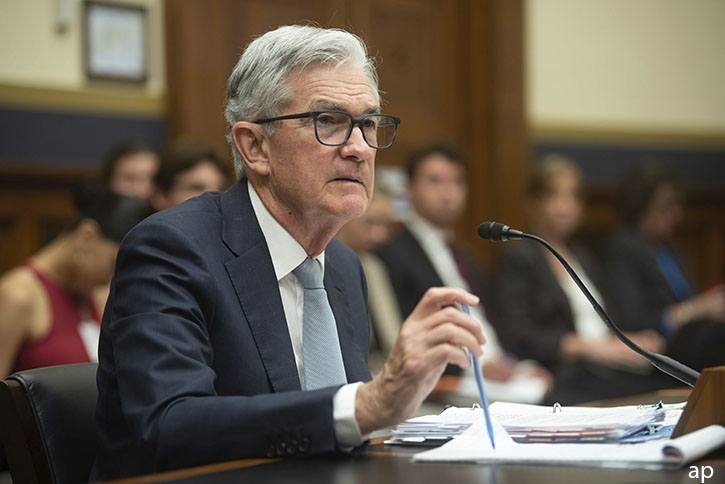Valerio Baselli: Hello, and welcome to Morningstar. I'm Valerio Baselli, and today, I'm joined by Madeline Hume. Madeline is Senior Research Analyst for Morningstar, and she recently published our first Cryptocurrency landscape report. Hi, Madeline. Nice to see you.
Madeline Hume: Valerio, it's great to be here. Thanks for having me.
Baselli: A couple of weeks ago, the European Union secured an agreement on what is likely to be the first major regulatory framework for the cryptocurrency industry, which is known by the way as Markets in Crypto-Assets or MiCA. What is the main goal of this bill?
Hume: Right. So, the name of the bill 'Markets in Crypto-Assets' is actually a pretty fitting summary of the bill itself. The legislation mostly impacts the nuts and bolts of how cryptocurrencies move through the markets, not so much about the crypto currencies themselves. The only thing that really affects the entire market is a stipulation that crypto currencies will have to publish a prospectus, just a mini prospectus, if they want to raise more than €1 million in the market. Otherwise, the legislation is a pretty sharp focus actually, and that's on setting the rules of the road for two main areas of the crypto markets which are stablecoins and service providers.
Baselli: So, can we say that this landmark law is designed to make life tougher for lots of players within the crypto market, including exchanges and issuers of stablecoins? And if so, in what way?
Hume: Right. For stablecoins, there's two primary ways that the bill targets them. One is by establishing reserve requirements and the other is by setting hefty limits on transaction volume. The final legislation requires excess reserves of up to 2%, which is far above what most stablecoins in the industry currently hold. This could cut into the profitability of these projects and force them into other business lines. And as you said could make life harder.
Service providers, meanwhile, have a couple of more items on their to-do-list than they had before this legislation. They have to pursue authorization with the EU in order to conduct business. They're going to be subject to capital requirements and insurance requirements, and finally, they're going to have to disclose to investors the potential risk of losses. But surprisingly, these crypto asset service providers actually stand to benefit from this bill. That's because once they're granted a license to one EU member state, their license carries over to all the other nations in the EU without having to obtain additional approval or licenses, which makes it a lot more easier to conduct business.
Baselli: Right. And from investors' point of view, what could be the main consequences of these new rules?
Hume: Yeah, it's interesting. So, the main consequence for investors of the crypto legislation surprisingly isn't in this bill at all. It's tucked into another bill that passed at around the same time that's geared towards preventing money laundering in the crypto ecosystem, but the requirements in that Bill will force investors to have to identify themselves in order to open a wallet, which is the main way that people store their cryptocurrencies and this kind of contradicts the decentralized ethos of crypto currencies. So, we're interested to see how that unfolds.
Baselli: Will this bill be able to revive confidence in crypto assets or will it definitively crush the dream of decentralized finance?
Hume: Yeah, it's a good question. Many in the crypto industry are really excited that there's now finally, some guardrails around regulation because it kind of reduces the risk of getting in trouble via enforcement. But surprisingly, decentralized finance isn't really mentioned in the bill. It's often said that regulators are always fighting the last war, and that's definitely the case here. A lot of the regulation in MiCA is laboriously worded to take into account a class of assets that doesn't really exist, which is stablecoins to track more than one asset.
Now, why is that? That's because in 2019, which is around the time that this legislation was drafted, Facebook had just announced its intention to create Libra, which is a cryptocurrency that central bankers, viewed as potentially threatening their sovereignty. So, this legislation really takes pains to prevent something like Libra from ever getting off the ground.
Baselli: Can you tell us what the situation is in the United States from this point of view? We know that regulating the crypto space is one of the main goals of the Securities and Exchange Commission.
Hume: Yeah. Unfortunately, the U.S. is really behind when it comes to creating a coherent framework for the digital asset space, and the EU definitely took them to task with this very comprehensive and thorough piece of legislation. The SEC would love to start regulating the crypto market, but unfortunately it just doesn't have the mandate to do so in most instances from Congress, just yet. There's a bipartisan proposal that would establish jurisdiction for the SEC and another agency, the CFTC. So, for everyone in the crypto industry, there's pretty common agreement that it's a good start, but it's probably still a year out from getting past, which is frustrating pacing in the breakneck world of digital assets.
Baselli: Finally, after a terrible first half of the year in terms of performance and also in terms of sustainability and resilience of many cryptos and many projects linked to digital assets, what investors should expect now? And do you think that, despite everything, cryptos have their legitimate place in the portfolio?
Hume: It might be a summer holiday in the U.K. and elsewhere in the EU, but right now within digital assets we're definitely experiencing a crypto winter. A lot of crypto currencies are trading at prices that investors haven't seen since the last crypto crash in 2018. Part of the thing that people love about crypto currencies is that they provide really uncorrelated return streams. And so, there's definitely merit to the idea of allocating a small amount of your portfolio to these uncorrelated return streams if you can stomach the volatility. But the problem is that the reason those returns are uncorrelated is because the way up is not explained by traditional market factors.
And that also means that when crypto currencies are falling in prices or getting slashed across the industry, that's also fairly uncorrelated. So, it's definitely a bumpier ride than most people expect. Crypto currencies continue to fall even when stock prices have recovered, and it's also possible that all of your funds could disappear if you pick the wrong place to put them. So, it's important within the crypto space to never bite off more than you can chew.
Baselli: Madeline, thank you so much for your time. For Morningstar, Valerio Baselli. Thanks for watching.





























